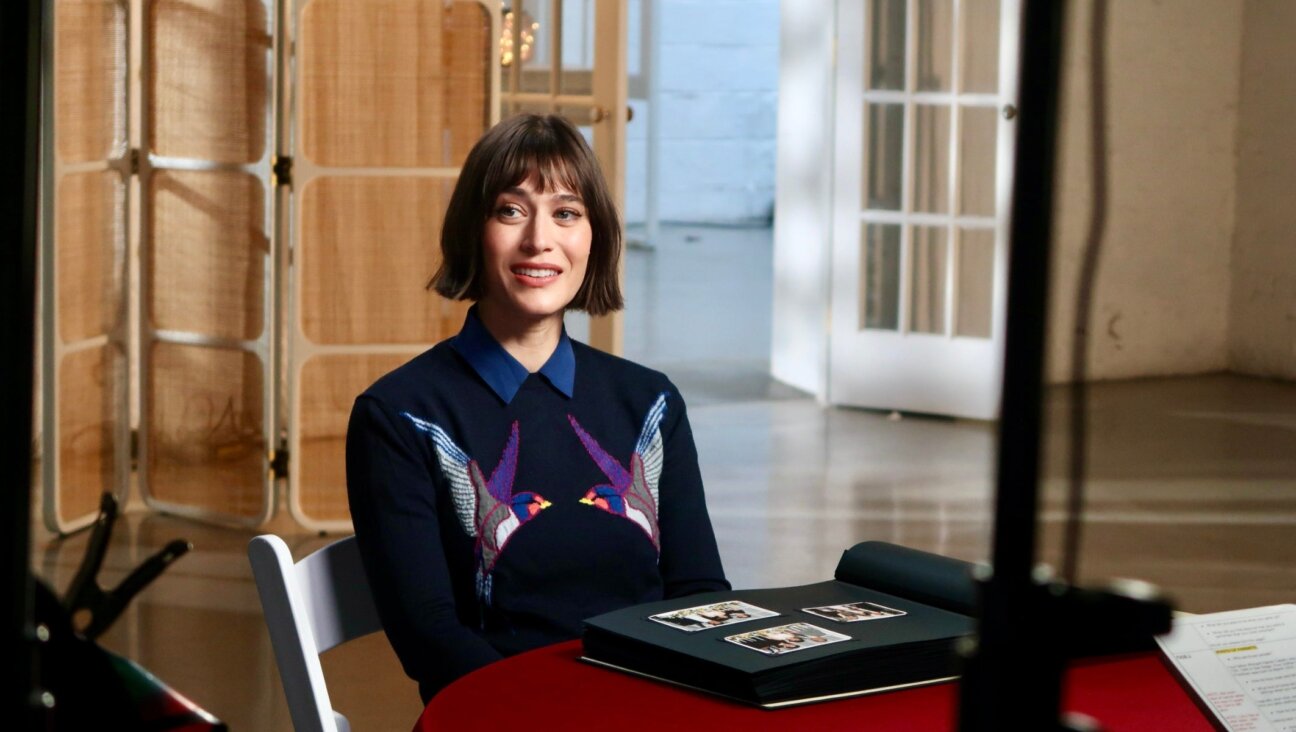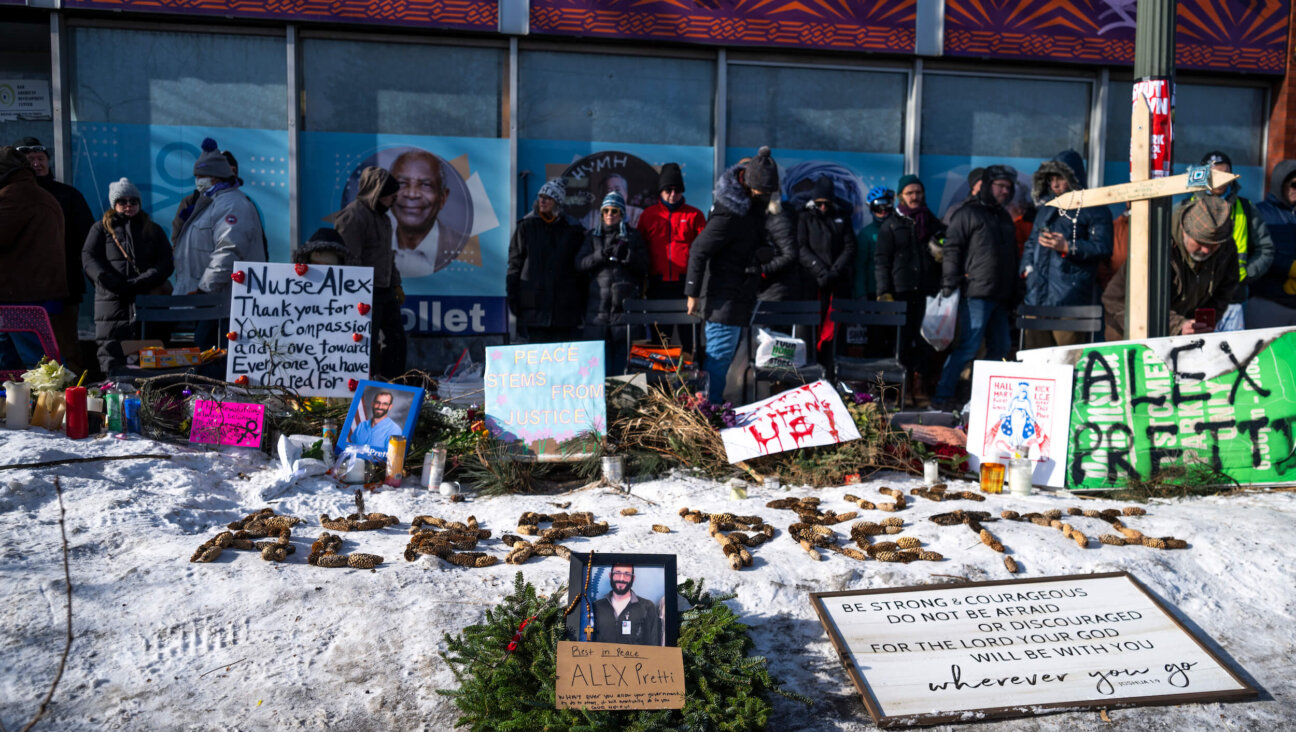As Shekel Rises, Israelis Question Sense of Fixing Economy to Dollar

Graphic by Angelie Zaslavsky
Haifa, Israel – Israeli economic experts are worried that the country’s economy may face a rude shock in the months ahead as the American dollar’s plummeting position in world trading leaves the shekel dangerously overvalued.
The dollar’s plunge is sending tremors around the globe, but Israel is expected to suffer more than most countries, according to observers. Israelis have looked to the dollar for financial stability since the early 1980s, when 600% hyperinflation shattered confidence in the local currency. Israeli markets have long since recovered, but psychological dependency on the dollar has lingered as a powerful force.
Now, however, tables have turned, to the point that almost nobody in Israel wants dollars at present. The dollar will buy 20% fewer shekels than it did a year ago, when the rate was 4.2 shekels to the dollar. In mid-March it plummeted below 3.4, which has long been seen as a low barrier.
On March 24, the Bank of Israel began buying $25 million a day in dollars and announced that it will continue to do so for two years. This will see its foreign exchange reserves grow to $38 billion from $28 billion. The official line, maintained in repeated conversations between the central bank and the Forward, is that the bank has long planned to increase its reserves, and with the shekel stronger against the dollar, now was a good time to start.
Most outside observers, however, felt the move to be an attempt to signal traders that the bank considers the shekel overvalued against the dollar and wants to push its value down.
“Though you could see it as a bid to affect the market through supply and demand, the values involved are too small to do this,” explained Elise Brezis, director of the Azrieli Center for Economic Policy at Bar-Ilan University. “Rather, it is a psychological method to show that the Bank of Israel believes the shekel is overly strong.” Whether or not this works, Israel’s love affair with the dollar, cemented during the hyperinflation of the 1980s, seems to be waning, according to Brezis.
“The change in the dollar affects every country, but Israel is a special case,” she said. “No other developed country is so tied in prices to dollars as Israel, and it is all due to the memory of hyperinflation. For the sake of stability, many people in the market set their prices in dollars. This seems now to be coming to an end.”
The clearest sign of this shift, Brezis said, is a trend away from the dollar among the American currency’s most diehard fans, the property market. Real estate agents have long been the leading proponents of pricing in dollars, but in the past month they have been changing the price tags on properties to shekels.
While real estate agents and others traders within Israel are able to break away from the dollar, the firms propping up Israel’s $71 billion-a-year export market do not have this option. “The devaluation of the dollar against the shekel is very problematic for exporters, as 75% of exports — even if the goods are not U.S.-bound — are for deals done in dollars,” complained Daphna Aviram, director of economic research and strategy at the Manufacturers Association of Israel.
“Buyers say these are the prices in dollars we can pay, so take them or we’ll go elsewhere,” Aviram said. “Israeli firms are not big enough to demand things to be done differently. Some manufacturers feel forced to let deals go, as there is no profit to be made.”
The weak dollar is already affecting trade, according to the association’s data. Exports in January and February were down 4% compared with the last quarter of 2007. The figure is adjusted seasonally.
Many firms are actually losing in three ways, Aviram said. They buy materials in euros, which are strong, and pay wages and fixed costs in shekels, which are also strong. But they receive payment in dollars, which are weak. It was against a background of these concerns that the Bank of Israel started its currency purchases.
Despite skepticism, the purchases seem to be having some effect. The representative exchange rate closed at 3.52 on Monday, up 3.64% on rates before the Easter/Purim weekend. Experts caution that it is difficult to determine how much of the rise is due to the currency purchases and how much is due to a decision by the Bank of Israel, also on Monday, to cut interest rates to 3.25%, the lowest ever.
It is not just manufacturers who are hoping the intervention has an effect. “People said to me when I made aliyah last year that if I could earn in dollars, I would be in a strong situation,” said Doron Blashter, a Haifa-based literary consultant. Like many Western immigrants, he was eager to work for American companies. “What did seem like a blessing now seems like a liability.”
For now, the average Israeli consumer has yet to feel any tangible effect on the economy, and the strong shekel is a boon. Car sales in 2007 were 32% higher than in 2007, and 40% more cars were sold this past January than in January 2007.
America is about to witness the effects of the strong shekel firsthand. Next month, when American Jews trek to the Holy Land in large numbers for the Passover holiday, record numbers of Israelis will make a pilgrimage in the other direction to spend some of their shekels.
Travel agents report a 20% increase on ticket sales to American destinations, compared with the same time last year. “Middle-class Israelis who, if they went away in the past, would have gone to Europe, are booking for America in huge numbers,” said Mark Feldman, CEO of the Jerusalem tour operator Ziontours.
“A ticket to the U.S. is 25% more than to Europe, but once people get there, their expenditure drops enormously,” Feldman said. “Israelis are voting with their feet, so they spend their shekels where they get to buy much more and where things are cheap for them.”














